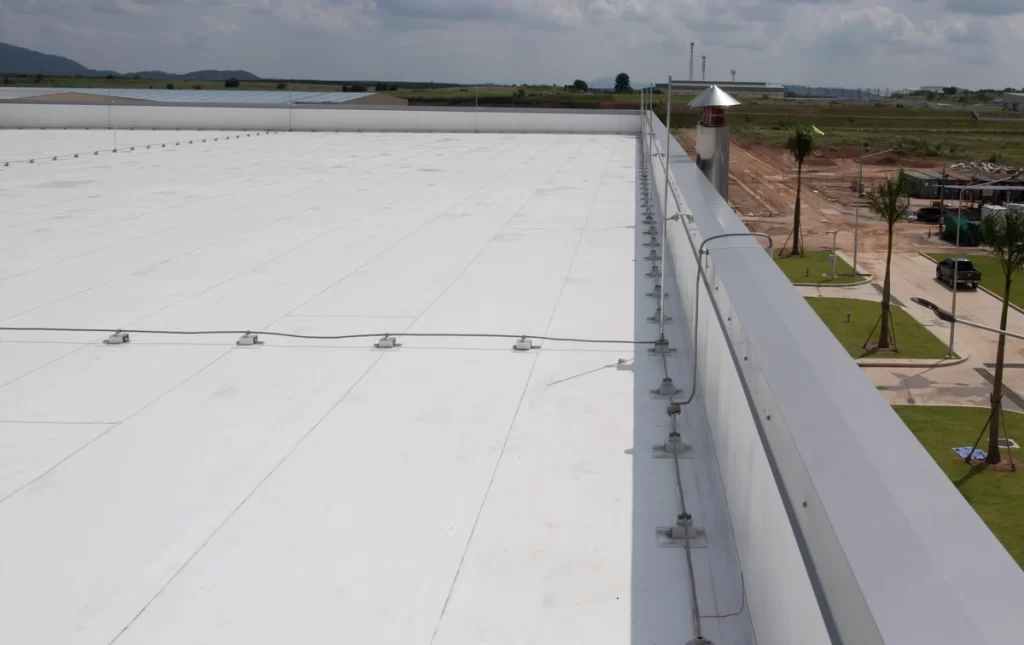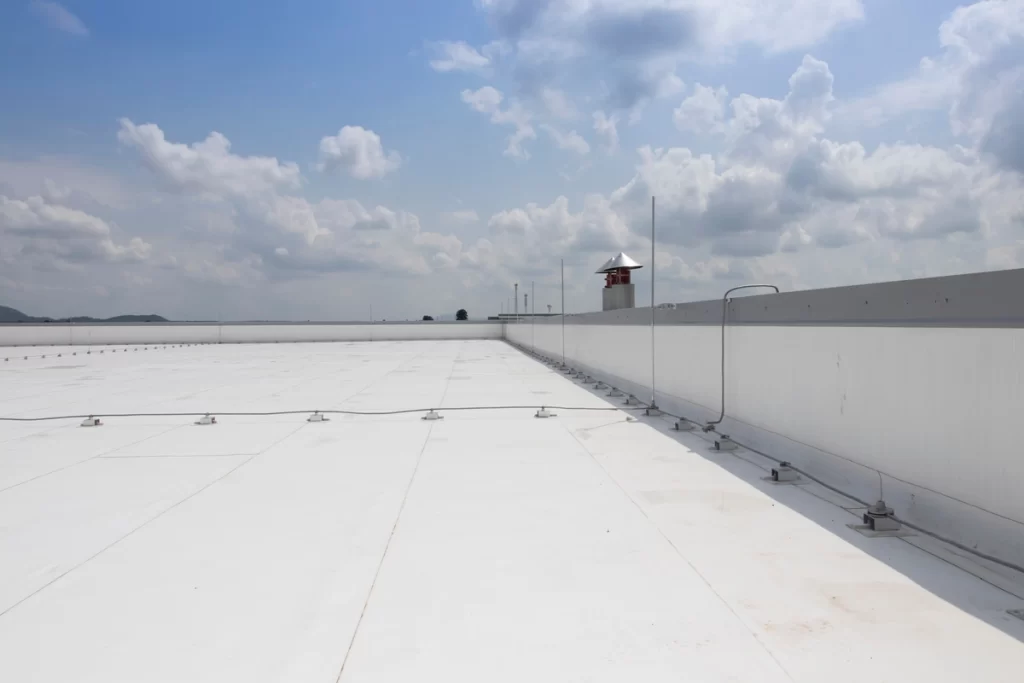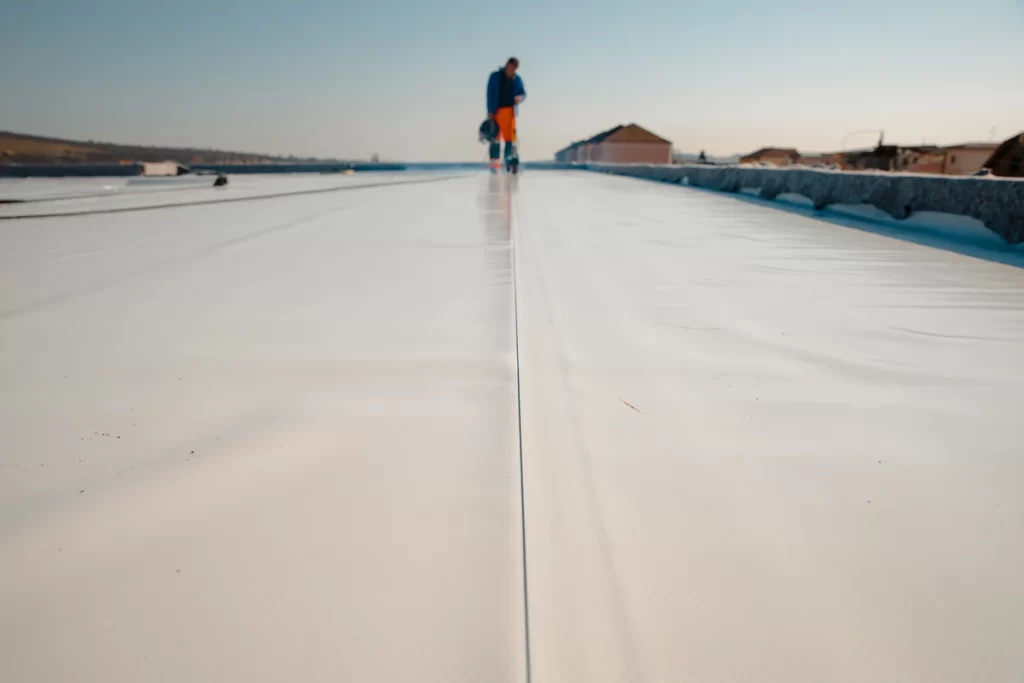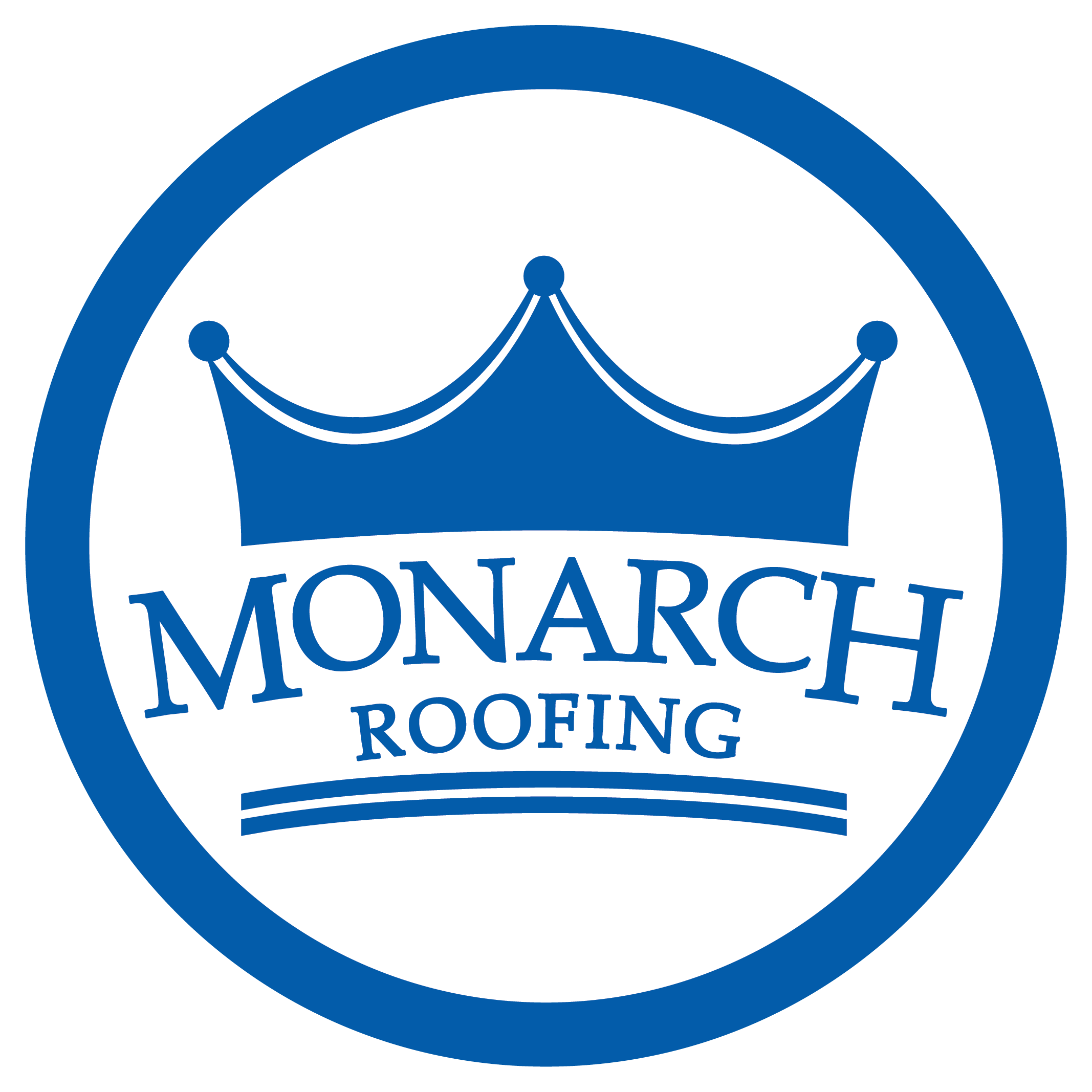Managing a property involves making multiple decisions that impact both the building’s longevity and the welfare of its occupants. One crucial aspect is the choice and maintenance of roofing materials. Among the various options, PVC (Polyvinyl Chloride) roofing stands out for its:
- Durability
- Cost-effectiveness
- Ease of maintenance
But exactly how long does PVC roofing last?
This guide aims to answer this question in detail, covering what PVC roofing is, signs of damage, its typical lifespan, when to replace it, and the associated costs of replacement.
What is PVC Roofing?

PVC roofing is a single-ply roofing membrane made from polyvinyl chloride. It is designed for low-slope or flat roof installations. PVC roofing is known for its flexibility, durability, resistance to weather, fire, chemicals, and punctures.
Key Features of PVC Roofing
- Durability: PVC roofing membranes are built to withstand harsh weather conditions, including high winds, heavy rain, and extreme temperatures.
- Flexibility: PVC can easily conform to the roofing structure, making it an ideal choice for complex roof designs.
- Energy Efficiency: Many PVC roofs are designed to reflect sunlight, reducing heat absorption and lowering cooling costs.
- Fire Resistance: PVC roofing material is inherently fire-resistant, adding an extra layer of safety to your property.
- Chemical Resistance: PVC is resistant to many chemicals, making it suitable for use in industrial settings.
Signs of Damage in PVC Roofing
Despite its durability, PVC roofing is not entirely immune to wear and tear. Being aware of the signs of damage can help you take timely action to maintain the integrity of your roof.
Common Signs of Damage
- Cracks and Splits: Over time, exposure to UV rays and fluctuating temperatures can cause the PVC membrane to crack or split.
- Discoloration: Fading or discoloration indicates UV degradation and potential weakening of the material.
- Ponding Water: Standing water on your roof can lead to leaks and structural damage. PVC is water-resistant, but prolonged exposure to ponding water can still cause issues.
- Blisters and Bubbles: These usually indicate trapped moisture beneath the membrane, which can compromise the roof’s integrity.
- Loose Seams: The seams where the membrane sheets are welded can become loose over time, leading to leaks.
- Punctures: Heavy foot traffic or falling debris can puncture the PVC membrane, creating entry points for water.
How Long Does PVC Roofing Last?
The lifespan of PVC roofing largely depends on factors such as the quality of the material, installation practices, environmental conditions, and maintenance routines.
Typical Lifespan
On average, a well-installed and properly maintained PVC roof can last between 20 to 30 years. However, some higher-quality PVC membranes can extend the lifespan up to 35 years or more.
4 Factors Influencing Lifespan

Estimating the life expectancy of your PVC roofing systems requires taking several factors into consideration, including:
1) Material Quality:
High-quality PVC membranes with proper reinforcement tend to last longer.
2) Installation:
Proper installation by certified professionals ensures that the roofing system functions optimally.
3) Climate:
Harsh climates with extreme temperatures or high UV exposure can reduce the lifespan of PVC roofing.
4) Maintenance:
Regular inspections and prompt repairs can significantly extend the lifespan of your PVC roof.
When to Replace PVC Roofing
Knowing when to replace your PVC roof can save you from costly repairs and potential hazards associated with a compromised roofing system.
Indicators for Replacement
- Frequent Leaks: Persistent leaks despite repairs indicate that the membrane has reached the end of its lifespan.
- Extensive Damage: Widespread cracks, punctures, or blisters that cover large areas of the roof warrant replacement.
- Structural Compromise: If the underlying structure of your roof is compromised, replacing the entire roofing system is advisable.
- Age: If your PVC roof is over 25 years old, it may be nearing the end of its functional life, and proactive replacement should be considered.
- Energy Inefficiency: An old, worn-out PVC roof may lose its reflective properties, causing increased cooling costs.
The Cost of Replacing PVC Roofing
Understanding the cost involved in replacing PVC roofing can help you budget and plan accordingly.
Cost Factors
Several variables affect the overall cost of replacing PVC roofing:
- Roof Size: Larger roofs require more material and labor, increasing the total cost.
- Material Quality: Higher-quality materials are more expensive but offer better durability and longer lifespan.
- Labor Costs: Professional installation ensures optimal performance but comes with labor charges.
- Preparation and Removal: The cost of removing the old roof and preparing the surface can add to the total expense.
- Location: Prices can vary based on geographic location and local market rates.
Average Costs
On average, the cost to replace a PVC roof ranges from $7 to $12 per square foot. For a typical 2,000 square foot roof, this translates to a total cost of $14,000 to $24,000. While this may seem like a significant investment, the longevity and benefits of PVC roofing make it a cost-effective choice in the long run.
Ways to Save
- Get Multiple Quotes: Obtain estimates from several contractors to ensure competitive pricing.
- Choose Quality Over Cost: Investing in higher-quality materials may have a higher upfront cost but will save money on repairs and replacements in the future.
- Regular Maintenance: Extend the lifespan of your current roof by adhering to a stringent maintenance schedule.
Commercial Roofing Expertise, One Call Away

PVC roofing is a robust and reliable choice for property managers looking to balance durability, cost, and environmental impact. If you’re a property manager seeking a durable and cost-effective roofing solution, PVC roofing offers a compelling option. Its average lifespan of 20-30 years, coupled with its resilience and energy efficiency, makes it a worthwhile investment for any property. Regular maintenance and timely replacements will ensure that your PVC roofing continues to perform optimally, protecting both your property and its occupants.
For expert advice on PVC roofing and to schedule an inspection,contact our team of certified professionals at Monarch Roofing today. Let’s help you make the best decision for your property’s roofing needs.





